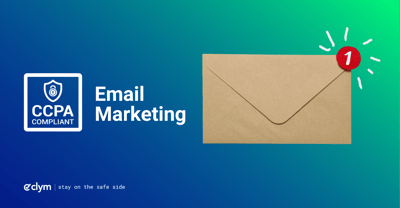Yes, you can use legitimate interest for email marketing under certain conditions. It must be balanced against the individual’s rights and expectations.
Email marketing remains a powerful tool for businesses, but it faces strict regulations. Understanding the legal grounds for sending marketing emails is crucial. Legitimate interest is one such ground, often misunderstood. It allows businesses to process personal data without explicit consent, but only if it meets specific criteria.
This blog post will explore how legitimate interest applies to email marketing. We will discuss its benefits, limitations, and best practices. By the end, you’ll know if legitimate interest is a viable option for your email campaigns.
Introduction To Legitimate Interest
Email marketing remains a powerful tool for businesses to connect with their audience. Understanding the legal aspects of this practice is vital. One important concept is “legitimate interest.” This blog post explores whether you can use legitimate interest for email marketing.
Definition And Importance
Legitimate interest is a legal basis for processing personal data. It allows businesses to use data without explicit consent, as long as it does not harm the individual’s rights. This is important because it provides flexibility for businesses. They can send emails without always needing permission.
Using legitimate interest can help in reaching potential customers. It can also save time and resources. Businesses must balance their interests with the privacy rights of individuals. This ensures that legitimate interest is applied correctly.
Legal Framework
The General Data Protection Regulation (GDPR) governs data protection in the EU. It outlines six legal bases for processing personal data. Legitimate interest is one of these bases. The GDPR requires businesses to prove their interest is lawful and necessary.
Businesses must conduct a Legitimate Interest Assessment (LIA). This assessment evaluates the necessity and impact on individuals. It ensures that the data use is fair and transparent. Companies must document their LIA to show compliance with GDPR.
Failure to comply with GDPR can lead to severe penalties. Businesses must understand and respect the legal framework. This helps maintain trust with their audience and avoids legal issues.

Credit: community.hubspot.com
Email Marketing Basics
Email marketing remains a powerful tool in the digital age. It helps businesses reach their audience directly. Many marketers use it to promote products and services. But understanding its basics is crucial for success.
What Is Email Marketing?
Email marketing involves sending emails to a group of people. These emails can contain promotional content, news, or updates. The goal is to engage with recipients. Businesses often use email marketing to build relationships with customers. It is cost-effective and can reach a wide audience quickly.
Key Benefits
Email marketing offers several advantages. First, it allows direct communication with customers. This helps in delivering personalized messages. Second, it is measurable. Marketers can track open rates, click-through rates, and conversions. Third, it can boost sales. Well-crafted emails can encourage purchases and repeat business.
Email marketing also supports brand awareness. Regular emails keep your brand in the minds of customers. Lastly, it is scalable. You can start with a small list and grow it over time.
Legitimate Interest In Marketing
In email marketing, companies must consider privacy laws. One key aspect is legitimate interest. This is a legal basis for processing personal data. Legitimate interest is a flexible option. It can help businesses justify email marketing activities.
Concept And Application
Legitimate interest means a company can use personal data if it has a valid reason. This reason must not harm the individual’s rights. For email marketing, the company must show that the emails benefit both the business and the recipient.
To apply legitimate interest, companies must balance their interests with the recipient’s rights. This involves a three-part test:
- Purpose Test: Identify the legitimate interest.
- Necessity Test: Ensure the data processing is necessary.
- Balancing Test: Consider the impact on the recipient.
Examples In Practice
Here are some examples of legitimate interest in email marketing:
| Example | Description |
|---|---|
| Customer Relationship Management | Sending emails to existing customers about new products. |
| Service Updates | Informing users about changes to their subscribed services. |
| Event Invitations | Inviting customers to relevant events or webinars. |
These examples show how legitimate interest can be used. Each case must be justified. Companies should keep records of their assessments. This ensures compliance with privacy laws.

Credit: www.cognism.com
Legal Considerations
Email marketing is a powerful tool. But navigating the legal landscape is crucial. Understanding the legal considerations helps in staying compliant and avoiding penalties. Here, we delve into key areas: GDPR and compliance requirements.
Gdpr And Legitimate Interest
The General Data Protection Regulation (GDPR) is a significant regulation. It governs data protection and privacy in the EU. Under GDPR, legitimate interest is one of the lawful bases for processing personal data.
To use legitimate interest, you must prove that your interests do not override the rights of the data subjects. This involves a balance test. Here are key points to consider:
- Identify your legitimate interest
- Conduct a necessity test
- Perform a balancing test
These steps ensure that your email marketing practices align with GDPR standards.
Compliance Requirements
Compliance with GDPR requires adherence to several requirements. These requirements are essential for lawful email marketing:
| Requirement | Description |
|---|---|
| Transparency | Inform users about data processing activities |
| Data Minimization | Collect only necessary data |
| Security | Protect data from breaches and unauthorized access |
| Rights of Data Subjects | Allow users to access, correct, and delete their data |
Meeting these compliance requirements is vital. It ensures that your email marketing is ethical and lawful. By adhering to these guidelines, you not only comply with the law but also build trust with your audience.
Advantages Of Legitimate Interest
Using legitimate interest for email marketing has many advantages. It helps businesses streamline their communication strategies. This method also supports compliance with data protection laws.
Cost-effectiveness
Legitimate interest can reduce marketing costs. It removes the need for extensive consent-gathering processes. Companies save time and money. They can focus on crafting effective email campaigns. This boosts productivity and efficiency.
Improved Targeting
Legitimate interest enables better targeting of email campaigns. Businesses can use existing customer data. They can tailor content to meet specific needs and interests. This increases engagement and conversion rates. It ensures that the right message reaches the right audience.

Credit: www.iconicdigital.co.uk
Challenges And Risks
Email marketing is a powerful tool for businesses. It can drive sales and build relationships. But, using legitimate interest as a basis for email marketing comes with challenges and risks. Understanding these can help businesses avoid pitfalls and maintain trust.
Potential Legal Issues
Using legitimate interest for email marketing can lead to legal problems. The GDPR sets strict rules. You must prove that your interest outweighs the privacy rights of individuals. This is not always easy. If you fail to do so, you could face fines.
Another risk is inconsistent regulations. Different countries have different laws. What is acceptable in one place may not be in another. This can create confusion. Businesses need to stay updated on legal changes to avoid penalties.
Consumer Trust
Trust is crucial in email marketing. Customers expect their data to be handled with care. If they feel their privacy is invaded, they may lose trust. This can damage your brand’s reputation.
Using legitimate interest might make some customers uneasy. They may see it as an excuse to send unsolicited emails. Transparent communication is key. Explain why you are contacting them and how they can opt out. This helps build and maintain trust.
Best Practices
Email marketing can be a powerful tool when used correctly. Using legitimate interest as the basis for email marketing requires careful consideration. Following best practices ensures compliance and builds trust with your audience.
Transparency And Consent
Always inform your subscribers about your data collection methods. Clearly state how you plan to use their information. Provide a simple way for users to opt-out at any time. This fosters trust and keeps your email list clean.
Explain the benefits your subscribers will receive. This helps them understand the value of staying on your list. Being transparent about your intentions can improve engagement.
Data Management
Keep your data organized and up-to-date. Regularly clean your email list to remove inactive subscribers. This helps maintain a high sender reputation. Use secure methods to store and manage your data.
Segment your audience based on their interests and preferences. This allows for targeted campaigns that are more likely to succeed. Respect the data privacy of your subscribers at all times.
Case Studies
Exploring the use of legitimate interest for email marketing? Case studies provide real-world examples of its application. They also highlight both success and lessons learned. Let’s delve into specific instances where companies used legitimate interest in their email campaigns.
Successful Campaigns
Many companies have leveraged legitimate interest for email marketing with great success. Here are a few notable examples:
| Company | Campaign | Outcome |
|---|---|---|
| Company A | Product Launch | Increased open rates by 30% |
| Company B | Seasonal Offers | Boosted sales by 20% |
| Company C | Customer Feedback | Enhanced engagement by 25% |
These companies targeted their email marketing based on legitimate interest. They saw substantial improvements in engagement and sales.
Lessons Learned
While many campaigns succeed, some face challenges. Here are key lessons from various case studies:
- Know Your Audience: Understanding your audience is crucial. Tailor your content to their needs and interests.
- Transparency: Always be transparent about why you are contacting them. Clearly state your legitimate interest.
- Testing: Continuously test your campaigns. Measure what works and what doesn’t.
- Feedback: Encourage and act on feedback. It helps improve future campaigns.
- Compliance: Ensure compliance with data protection regulations. This builds trust and avoids legal issues.
These lessons underline the importance of being audience-centric and transparent. They also emphasize the need for ongoing testing and compliance.
Frequently Asked Questions
What Is Legitimate Interest In Email Marketing?
Legitimate interest is a lawful basis for processing personal data. It allows businesses to use data for marketing without explicit consent, if they can justify the benefit to both parties.
How Do You Determine Legitimate Interest?
To determine legitimate interest, assess if the data processing is necessary and balanced. Ensure it doesn’t override the individual’s rights and interests.
Can You Email Without Consent?
Yes, you can email without consent under legitimate interest. However, you must ensure it’s justified, necessary, and respects the recipient’s rights.
Is Legitimate Interest Gdpr Compliant?
Yes, legitimate interest is GDPR compliant if properly assessed. You must document your reasoning and ensure it respects individuals’ rights.
Conclusion
Legitimate interest can be used for email marketing, but be cautious. Ensure your emails respect user rights and privacy. Always provide an easy way to opt-out. Clear consent remains the best practice. Balancing interests and transparency keeps your audience happy.
Remember, trust builds long-term relationships. Consistent review and updates to your strategy are crucial. Stay informed on regulations to avoid penalties. Effective email marketing respects both legal standards and user expectations.



Leave a Reply